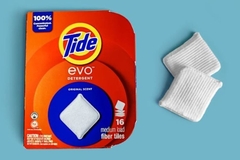Study highlights turmeric for hyperpigmentation and skin brightening formulations

The turmeric-derived compound Curcuma longa shows potential for skin brightening products, hyperpigmentation, age spots, freckles, discoloration, and other UV-exposure-related complaints, according to a recent study. The aromatic turmerone can inhibit tyrosinase activity, a key enzyme in melanin production.
The research points out that UV damage to skin may have a negative psychological impact on individuals, including embarrassment and social isolation. Many consumers use skin-whitening products, both natural and synthetic.
Therefore, the scientists stress the need for academia, research institutes, and industry to discover natural, safe anti-melanogenesis compounds.
Boosted by modifications
The study, published in the International Journal of Biological Macromolecules, found that aromatic turmerone inhibits melanin production mainly when tweaked with the chemical modifications methoxy, bromine, or indole groups.
The researchers note that binding aromatic turmerone and its derivatives changes the secondary structure of tyrosinase and reduces enzymatic activity.
Turmeric is also an antioxidant, which fights oxidative stress caused by UV exposure and pollution. This helps against hyperpigmentation and aging, and the researchers argue that turmeric could protect the skin from forming new dark spots while reducing inflammation.
 Turmeric is an antioxidant that fights oxidative stress caused by UV exposure and pollution.Meanwhile, it also found that chemical modifications may impact membrane permeability — penetrating the outer layer of the skin — and modifying the turmeric’s molecules could make them more powerful, faster, and effective at fading dark spots on the skin, and help even out the skin tone, compared to unmodified turmeric extracts.
Turmeric is an antioxidant that fights oxidative stress caused by UV exposure and pollution.Meanwhile, it also found that chemical modifications may impact membrane permeability — penetrating the outer layer of the skin — and modifying the turmeric’s molecules could make them more powerful, faster, and effective at fading dark spots on the skin, and help even out the skin tone, compared to unmodified turmeric extracts.
The modified version can also be absorbed better into the skin, which gives a more noticeable skin-lightening effect.
Skin brightening products have been in the spotlight for often containing harsh and harmful ingredients, and in certain markets, such as Nigeria, they lack necessary regulations. Some experts emphasize that these products can lead to kidney damage, nervous system disorders, psychosis, neurological damage, and severe skin reactions.
Last year, EcoWaste Coalition flagged that they found mercury in various skin-lightening products in the Philippines, proposing action to protect consumers from these dangerous personal care products.
Turmeric in cosmetics
Turmeric is known for its regenerative properties, containing over 230 compounds, and has shown potential in more than 400 pre-clinic assays and over 3,000 publications, Personal Care Insights reported last year.
Turmeric has been found to tighten overall skin elasticity and speed up the skin’s ability to create new tissue. Last year, several beauty companies launched skin care products containing turmeric. Givaudan unveiled a vegan botanical extract for hybrid makeup.
Debut and L’Oréal co-developed over a dozen “vital and bio-identical” ingredients to replace conventionally sourced ingredients currently used in L’Oréal global beauty and personal care brands across skin, hair, color cosmetics, and fragrance.













